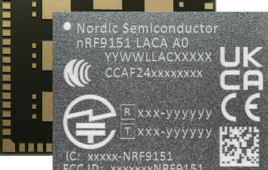Any time the country of Sudan has made mainstream headlines in recent years, the focus would pertain to the country’s political and economic instability that’s forced millions of people into displacement, starvation, and caused the deaths of several thousand more. Since the majority of people residing in South Sudan don’t own or have access to television, their primary source for receiving news and other important information comes from radio.
In addition to largely relying on this outdated form of media to stay informed on local and national news, most of the radio stations in Sudan run off of fuel-powered generators in a country where access to such resources is extremely limited and expensive. These generators are prone to malfunctions and periodic outages that can leave entire communities without access to radio and the pertinent information they need for several days at a time.
Hoping to put an end to this tedious cycle of instability and unreliability, Electrical Engineer Issa Kassimu came up with the idea of utilizing solar cells to fuel South Sudan’s radio stations. Kassimu has spent years repairing electrical generators across the country, which is when he came up with this innovative idea. This became the basis for developing Sudan’s first solar-powered radio station—Mayardit FM, which has been running exclusively on solar power since last March.
Based in the city of Turalei in the northeast region of South Sudan, the radio station is equipped with 84 solar panels and 48 batteries. Although the radio station is now capable of broadcasting continuously, Mayardit FM’s broadcast hours have since doubled since the changes were made, from eight to 16 hours. The radio station uses an interchangeable system that runs on power when its batteries are fully charged, and switches to the batteries when the solar panels don’t have access to the sun like during the night.
It cost $172,000 for Mayardrit FM to switch to solar power, a sum of money that is expected to be fully covered within the next five years. These costs are ultimately offset by the amount of money the radio station will now save on fuel, equipment, and maintenance. According to Kassimu, Mayardrit FM used to spend $22,000 a year maintaining its fuel-powered generators, and fuel (when available) was astronomically more expensive in Turalei than other South Sudan communities like Juba.
Although the Mayardrit FM only covers a limited range, Kassimu hopes that other radio stations and businesses in Sudan will continue this trend upon realizing the immense benefits that switching to solar-power has. While there is still a lot of work to be done in Sudan’s southern region, feats like the one Kassimu helped achieve spark hope that things will soon settle down in this hostile unsteady part of the world.




